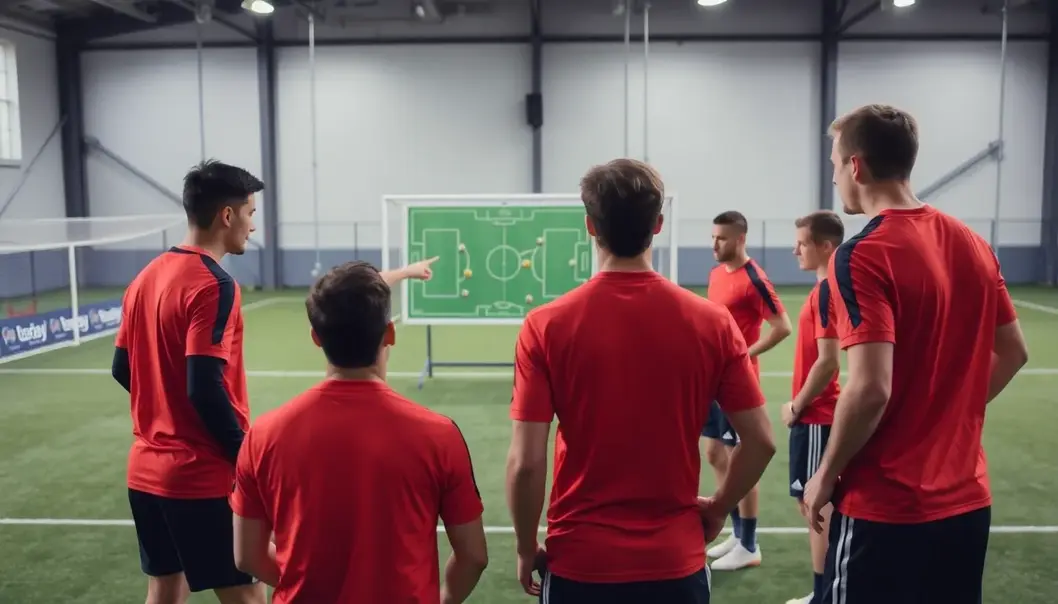Kicking goals on the field is just the tip of the iceberg for professional soccer players. Their daily schedules are a blend of training, recovery, nutrition, and tactical planning—all meticulously designed to keep them at peak performance. For young adults who dream of emulating their favorite stars, or simply appreciate what goes on behind the scenes, understanding a pro player’s day-to-day routine can be both enlightening and inspiring. Let’s dive into the structured chaos of a professional soccer player’s life, uncovering a world fueled by passion, discipline, and an unwavering commitment to the game they love.
Morning Rituals: Fueling the Machine

The morning of a professional soccer player is a precisely orchestrated symphony of discipline and dedication. As the sun peeks over the horizon, athletes rise early, their internal clocks finely tuned to the rhythm of their sport. The day begins with a series of stretches just after waking up, limbering up the muscles that will see hours of rigorous action. This initial activity, although seemingly low-key, is vital for injury prevention and ensuring muscular elasticity.
Following the early morning stretch, hydration becomes paramount. Soccer players are acutely aware of the role that proper hydration plays in their performance. They consume a glass of water infused with electrolytes, a small yet significant habit to maintain balance, especially after a night of sleep.
Next comes the first meal of the day, designed to provide a balanced blend of carbohydrates, proteins, and healthy fats. This breakfast acts as the cornerstone for their energy requirements, fueling their bodies for both morning workouts and longer training sessions later. Popular choices among players include oatmeal with berries or eggs accompanied by whole grain toast. As they eat, they mentally prepare for the day ahead, visualizing their goals and the training tasks that align with them. With every bite, their focus sharpens, mirroring the precision required on the pitch.
Once fueled, the players head to the training grounds. The journey to the facility often includes a sequence of motivational activities, such as listening to curated playlists or engaging in meditation. These mental preparations are crucial, as soccer isn’t merely a physical battle but a strategic one as well.
Upon arrival, they engage in focused warm-ups, starting with light jogging followed by dynamic stretches. This routine serves as a primer, setting the scene for more intensive drills that hone their agility, speed, and stamina. The early morning drills are not exhaustive but designed to awaken muscle memory and reflexes. Trainers may introduce ball work at this stage, allowing players to reacquaint themselves with the tactile sensations of the sport.
When the morning training concludes, players partake in recovery techniques like cold-water immersions or stretching once again to minimize soreness and expedite recovery. Before transitioning to the next phase of their day, players take a moment to reflect, assessing their progress and areas for improvement. This self-assessment becomes a guiding force, ensuring each day ends better than the last.
The morning rituals of a soccer player lay the foundation for the rest of their day—and, indeed, their careers. These routines are crafted not just to build physical prowess but to cultivate a mindset equipped to handle the challenges of the professional arena. The discipline instilled within the first few hours of the day forms a bedrock, upon which tactical mastery and personal growth are built.
Afternoon Grind: Tactical Mastery and Recovery

As the sun reaches its peak and the morning momentum begins to taper, a professional soccer player’s afternoon schedule kicks in with renewed focus and intensity. This period, often characterized by tactical development and deliberate recovery practices, is designed to fine-tune both mind and body for peak performance.
Tactical training sessions are a cornerstone of the afternoon regimen. Here, players engage in meticulously crafted drills that hone their understanding of strategic game play. These sessions are not only about physical execution but also about reading the game—anticipating opponents’ moves and coordinating plays with teammates. Coaches might organize small-sided games that simulate real match conditions, offering players the opportunity to practice pressing strategies or refine their passing accuracy within a high-pressure environment. The goal is clear: to translate learned tactics into instinctive on-field actions.
Video analysis complements these physical drills, forming an essential part of tactical mastery. Players gather around screens to critique past performances, identifying areas of improvement and recognizing successful strategies. Specialists highlight both team dynamics and individual contributions, using footage to teach positioning, movement, and decision-making. These sessions foster a culture of continuous learning and adaptation, vital for maintaining competitive edge.
Balancing this intensive tactical focus, recovery practices form the second pillar of the afternoon routine. Engaging in physiotherapy is common, where players undergo massages and targeted exercises to alleviate muscle tension built up from intense morning activities. These sessions aid in not only physical recovery but also in preparing the body for future exertion. Hydration and nutrition strategies are refreshed, ensuring players are fueled with essential nutrients to rebuild energy stores.
Equally important is the emphasis on mental relaxation. Quiet time for meditation or light recreational reading can provide players the mental respite needed from the rigorous demands of professional sport. Such activities help in reducing stress and improving focus, allowing players to recharge the psychological resources necessary for optimal functioning both on and off the field.
Ultimately, the afternoon grind is about achieving a delicate balance— synchronizing the intense demands of tactical enhancement with the rejuvenative needs of the body and mind. By embracing both intensive effort and strategic rest, professional soccer players sustain the stamina and sharpness that define their elite status. This blend of physical rigour, cognitive challenge, and restful rejuvenation underscores the holistic nature of an athlete’s training day, preparing them comprehensively for the challenges that await in evening sessions or upcoming matches.
Final words
In the demanding world of professional soccer, every day is carefully planned to maximize performance, with a mix of physical training, strategic meetings, and crucial recovery time. Young adults can learn valuable lessons about discipline, teamwork, and passion by observing these routines. Whether aspiring to a professional sports career or simply seeking inspiration, the commitment showcased by these athletes can ignite motivation in any journey.
Explore our comprehensive guide to soccer training techniques tailored for aspiring players.
Learn more: https://www.soccertrainingguide.com
About us
SoccerTrainingGuide.com offers cutting-edge soccer training programs, nutritional plans, and recovery methods for athletes at all levels to optimize their performance and achieve their goals.



